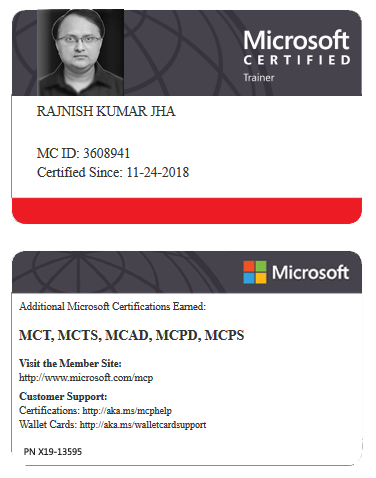Azure App Service offers a wide range of benefits, making it an ideal choice for hosting web applications, APIs, and mobile backends.
Here are the key benefits of using Azure App Service.
Fully Managed Platform
No Infrastructure Management: Azure App Service abstracts away the underlying infrastructure, so you don’t need to manage servers, operating systems, or networking. Azure takes care of patching, updating, and scaling, allowing you to focus entirely on your application code.
Built-in Monitoring and Diagnostics: Built-in logging, metrics, and application insights provide real-time diagnostics and performance monitoring, making it easier to troubleshoot and optimize your app.
Scalability
Automatic Scaling (Autoscaling): Azure App Service supports horizontal scaling (scaling out by increasing the number of instances) and vertical scaling (changing the pricing tier). You can configure autoscaling to automatically adjust the number of instances based on demand, such as CPU usage, memory usage, or custom metrics.
Global Scalability: You can deploy your app to multiple regions, ensuring it’s available globally and delivering lower latency for users across different geographic locations.
High Availability: Azure ensures high availability with built-in load balancing and redundancy. You can deploy apps across multiple regions to ensure failover in case of regional outages.
Security and Compliance
Built-in Security Features
Authentication and Authorization
Integrated with Azure Active Directory, Facebook, Google, and other identity providers to manage user authentication and access control.
SSL/TLS Encryption
Supports HTTPS and SSL certificates for secure data transfer.
Network Security
Supports Virtual Network (VNet) integration for isolating your application and using private network resources, as well as IP restrictions to limit access based on IP addresses or subnets.
Compliance Certifications
Azure App Service complies with industry standards such as ISO 27001, SOC 1/2/3, GDPR, HIPAA, and FedRAMP, making it suitable for high-compliance and regulated industries like healthcare and finance.
Developer Productivity
Supports Multiple Languages and Frameworks
App Service supports a wide range of programming languages (e.g., .NET, Node.js, Python, Java, PHP, Ruby) and frameworks, including Docker containers.
This makes it a versatile platform for developers across different stacks.
Integrated CI/CD Pipelines
Easily integrate with Azure DevOps, GitHub Actions, and other CI/CD tools for automated deployments.
You can deploy directly from source control (Git, GitHub, Azure Repos), simplifying your development lifecycle.
Developer Tools Integration
Azure App Service integrates with development tools like Visual Studio, Visual Studio Code, and Eclipse, providing seamless workflows for developers.
You can deploy directly from these tools with just a few clicks.
Cost-Effective and Flexible Pricing
Pay-As-You-Go
With App Service’s pricing model, you only pay for the resources you use, making it flexible for various workloads—from small hobby projects to large-scale enterprise apps.
Free and Shared Tiers
App Service offers free and shared tiers for small projects, prototypes, and testing, with limited resources.
Paid tiers offer more robust features, such as scaling, custom domains, and enhanced security.
Flexible Pricing Plans
You can choose from several pricing plans (e.g., Basic, Standard, Premium, Isolated) depending on your app’s performance, security, and scaling requirements.
You can scale up or down as needed, providing cost control as your needs change.
Ease of Deployment
Multiple Deployment Options: Azure App Service provides a variety of deployment methods:
Git-based Deployment: Deploy code directly from a Git repository (GitHub, Bitbucket, Azure Repos).
FTP/SFTP: For traditional file-based deployments.
Azure CLI/PowerShell: For advanced deployments and automation.
Docker Containers: Deploy your app as a Docker container, enabling you to run any app in a consistent, isolated environment.
CI/CD Pipelines: Integrate with Azure DevOps, GitHub Actions, or other CI/CD tools for automated build, test, and deployment workflows.
Integrated Services
App Insights and Monitoring
App Service has built-in integration with Azure Application Insights for deep monitoring of application performance, request response times, failure rates, and more.
You can quickly identify and diagnose issues and gain insights into app usage.
Azure Functions Integration
You can easily integrate with Azure Functions to add serverless capabilities to your app, enabling event-driven, scalable backend logic.
Database Integration
You can seamlessly integrate App Service with Azure SQL Database, Cosmos DB, or other Azure services to build fully managed, cloud-native applications.
Global Distribution
Deploy to Multiple Regions
You can host your app in multiple regions around the world, improving performance for users in different geographic locations.
Azure provides Traffic Manager for routing traffic to different regions based on user location or other routing rules.
Disaster Recovery
With multi-region support and georedundant deployment, App Service provides enhanced disaster recovery capabilities in case of regional failures.
DevOps and Automation
DevOps Automation
App Service integrates with Azure DevOps and GitHub Actions for building automated CI/CD pipelines.
You can automate the testing, building, and deployment of your app in a repeatable and reliable way.
Scaling Rules
With built-in autoscaling, you can define rules for scaling in and out based on metrics like CPU usage, memory usage, or HTTP request count.
This ensures that your app scales according to demand, ensuring optimal performance and cost management.
Container Support
Docker Support
App Service supports Docker containers and Kubernetes, enabling you to deploy containerized applications.
This is ideal for modern microservices architectures or if you prefer to manage dependencies in a containerized environment.
Custom Containers
You can deploy your application in custom containers, giving you full control over the app environment and dependencies.
Custom Domains and SSL
Custom Domain Mapping: You can map custom domain names (e.g., www.yourcompany.com) to your App Service app, enhancing your app's branding and professional appearance.
SSL/TLS Support: App Service supports SSL certificates for secure communication between your users and the app. You can also use Azure-managed certificates or upload your own.
Integration with Azure Ecosystem
Azure Active Directory (AAD): Integrate your app with Azure AD for enterprise-grade authentication and authorization, supporting user sign-in, role-based access control (RBAC), and identity federation.
Integration with Azure Blob Storage: App Service can easily integrate with Azure Blob Storage to store and serve static content, images, videos, or backups.
Azure Key Vault: Securely store and manage application secrets (e.g., API keys, passwords) using Azure Key Vault integration.
Azure Logic Apps: You can integrate App Service with Azure Logic Apps for building workflows and automating business processes.
Customizable with Extensions
App Service Extensions:
App Service allows you to extend the functionality of your app with a variety of extensions, such as Azure Redis Cache, Azure CDN, Application Gateway, and more.
Isolated Environments
App Service Environment (ASE):
For high-compliance or highly sensitive applications, you can deploy your app in a fully isolated network environment.
ASE provides additional network isolation, increased security, and dedicated resources for enterprise-level applications.
Environment Consistency
Staging Slots: You can create deployment slots (e.g., staging, production) for safe and smooth deployments. This enables you to test new versions of your app in a staging environment before promoting them to production, reducing downtime and deployment risks.
Blue/Green Deployments: You can perform blue-green deployments using App Service's slots, minimizing disruptions to users during app updates.
Summary of Key Benefits
Fully managed and scalable platform with no infrastructure management required.
High availability with autoscaling, load balancing, and disaster recovery features.
Multiple programming language support and easy integration with CI/CD pipelines.
Robust security features like SSL, authentication, and VNet integration.
Cost-effective with flexible pricing models and only pay for what you use.
Global reach and distribution across multiple Azure regions for improved app performance.
Developer productivity with integrated tools and automated workflows.
Custom domain support and SSL for professional branding and security.
Built-in monitoring and diagnostics with Application Insights.
Azure App Service is an excellent choice for developers looking to quickly build, deploy, and scale applications without worrying about infrastructure management.
Its flexibility, scalability, and wide array of features make it suitable for everything from small personal projects to large enterprise applications.




















Leave a Reply